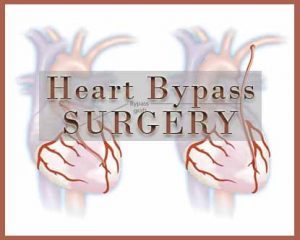- Home
- Editorial
- News
- Practice Guidelines
- Anesthesiology Guidelines
- Cancer Guidelines
- Cardiac Sciences Guidelines
- Critical Care Guidelines
- Dentistry Guidelines
- Dermatology Guidelines
- Diabetes and Endo Guidelines
- Diagnostics Guidelines
- ENT Guidelines
- Featured Practice Guidelines
- Gastroenterology Guidelines
- Geriatrics Guidelines
- Medicine Guidelines
- Nephrology Guidelines
- Neurosciences Guidelines
- Obs and Gynae Guidelines
- Ophthalmology Guidelines
- Orthopaedics Guidelines
- Paediatrics Guidelines
- Psychiatry Guidelines
- Pulmonology Guidelines
- Radiology Guidelines
- Surgery Guidelines
- Urology Guidelines
Aspirin+ticagrelor improves outcomes after elective CABG

Administration of dual antiplatelet therapy (DAPT) comprising of aspirin plus ticagrelor, for one year after coronary artery bypass grafting (CABG) results in less narrowing of the vein used to bypass a blocked artery , as compared to when aspirin is administered alone. It implies that Aspirin & ticagrelor combo improves outcomes after elective CABG. This is conclusion of a study done by Qiang Zhao, researcher at Ruijin Hospital Shanghai Jiao Tong University School of Medicine, Shanghai, China, and colleagues, which was published in the Journal of the American Medical Association.
This study holds importance as according to previous data, the rate of failure of a graft of a saphenous vein was approximately 15% to 20% within one year after coronary artery bypass grafting (CABG) surgery and was associated with worse long-term outcomes. Antiplatelet therapy with aspirin improves vein graft patency .
Though the trial has some limitations as it was designed specifically for examination of saphenous vein graft patency so the results cannot be generalized to include arterial grafts. And also, the trial was not equipped to identify a significant effect on the incidence of major adverse cardiac events or other secondary and bleeding outcomes.
For carrying out the research, 500 patients who underwent CABG were enrolled in a randomized clinical trial in 2014 and 2015, with final follow-up in early 2017. Within 24 hours after CABG, 168 patients received ticagrelor (twice daily) and aspirin (once daily); 166 patients received ticagrelor (twice daily); 166 patients received aspirin (once daily) (interventions); patency of the grafted vein (less than 50% narrowing) one year after CABG (outcome).
.The Researchers concluded tat among patients undergoing elective CABG with saphenous vein grafting, ticagrelor + aspirin significantly increased graft patency after 1 year vs aspirin alone; there was no significant difference between ticagrelor alone and aspirin alone.However further research with more patients is needed to assess comparative bleeding risks.
For further information click on the link: 10.1001/jama.2018.3197
blocked arterybypass surgeryCABGCardiac Sciencescoronary artery bypass graftingdual antiplatelet therapyJAMAJournal of the American Medical Association.Qiang Zhaoresearcher Qiang Zhaosaphenous vein graftticagrelorvein graft patency
Source : With inputs from JAMANext Story
NO DATA FOUND

Disclaimer: This site is primarily intended for healthcare professionals. Any content/information on this website does not replace the advice of medical and/or health professionals and should not be construed as medical/diagnostic advice/endorsement or prescription. Use of this site is subject to our terms of use, privacy policy, advertisement policy. © 2020 Minerva Medical Treatment Pvt Ltd